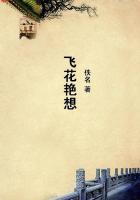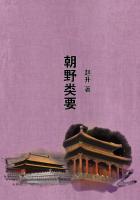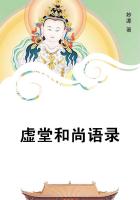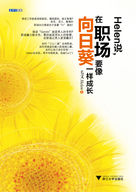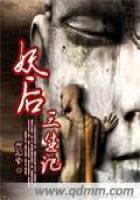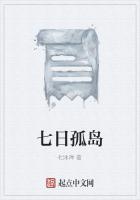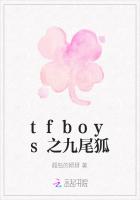His work as a physiologist was even more important, for, so far as we know, he was the first to carry out experiments on a large scale. In the first place, he was within an ace of discovering the circulation of the blood. You may remember that through the errors of Praxagoras and Erasistratus, the arteries were believed to contain air and got their name on that account: Galen showed by experiment that the arteries contain blood and not air. He studied particularly the movements of the heart, the action of the valves, and the pulsatile forces in the arteries. Of the two kinds of blood, the one, contained in the venous system, was dark and thick and rich in grosser elements, and served for the general nutrition of the body. This system took its origin, as is clearly shown in the figure, in the liver, the central organ of nutrition and of sanguification. From the portal system were absorbed, through the stomach and intestines, the products of digestion. From the liver extend the venae cavae, one to supply the head and arms, the other the lower extremities: extending from the right heart was a branch, corresponding to the pulmonary artery, the arterial vein which distributed blood to the lungs.
This was the closed venous system. The arterial system, shown, as you see, quite separate in Figure 31, was full of a thinner, brighter, warmer blood, characterized by the presence of an abundance of the vital spirits. Warmed in the ventricle, it distributed vital heat to all parts of the body. The two systems were closed and communicated with each other only through certain pores or perforations in the septum separating the ventricles. At the periphery, however, Galen recognized (as had been done already by the Alexandrians) that the arteries anastomose with the veins, ". . . and they mutually receive from each other blood and spirits through certain invisible and extremely small vessels."
It is difficult to understand how Galen missed the circulation of the blood. He knew that the valves of the heart determined the direction of the blood that entered and left the organ, but he did not appreciate that it was a pump for distributing the blood, regarding it rather as a fireplace from which the innate heat of the body was derived. He knew that the pulsatile force was resident in the walls of the heart and in the arteries, and he knew that the expansion, or diastole, drew blood into its cavities, and that the systole forced blood out. Apparently his view was that there was a sort of ebb and flow in both systems--and yet, he uses language just such as we would, speaking of the venous system as ". . . a conduit full of blood with a multitude of canals large and small running out from it and distributing blood to all parts of the body." He compares the mode of nutrition to irrigating canals and gardens, with a wonderful dispensation by nature that they should "neither lack a sufficient quantity of blood for absorption nor be overloaded at any time with excessive supply." The function of respiration was the introduction of the pneuma, the spirits which passed from the lungs to the heart through the pulmonary vessels. Galen went a good deal beyond the idea of Aristotle, reaching our modern conception that the function is to maintain the animal heat, and that the smoky matters derived from combustion of the blood are discharged by expiration.
I have dwelt on these points in Galen's physiology, as they are fundamental in the history of the circulation; and they are sufficient to illustrate his position. Among his other brilliant experiments were the demonstration of the function of the laryngeal nerves, of the motor and sensory functions of the spinal nerve roots, of the effect of transverse incision of the spinal cord, and of the effect of hemisection. Altogether there is no ancient physician in whose writings are contained so many indications of modern methods of research.
Galen's views of disease in general are those of Hippocrates, but he introduces many refinements and subdivisions according to the predominance of the four humors, the harmonious combination of which means health, or eucrasia, while their perversion or improper combination leads to dyscrasia, or ill health. In treatment he had not the simplicity of Hippocrates: he had great faith in drugs and collected plants from all parts of the known world, for the sale of which he is said to have had a shop in the neighborhood of the Forum. As I mentioned, he was an eclectic, held himself aloof from the various schools of the day, calling no man master save Hippocrates. He might be called a rational empiricist. He made war on the theoretical practitioners of the day, particularly the Methodists, who, like some of their modern followers, held that their business was with the disease and not with the conditions out of which it arose.
No other physician has ever occupied the commanding position of "Clarissimus" Galenus. For fifteen centuries he dominated medical thought as powerfully as did Aristotle in the schools.
Not until the Renaissance did daring spirits begin to question the infallibility of this medical pope. But here we must part with the last and, in many ways, the greatest of the Greeks-- a man very much of our own type, who, could he visit this country today, might teach us many lessons. He would smile in scorn at the water supply of many of our cities, thinking of the magnificent aqueducts of Rome and of many of the colonial towns--some still in use-- which in lightness of structure and in durability testify to the astonishing skill of their engineers.
There are country districts in which he would find imperfect drainage and could tell of the wonderful system by which Rome was kept sweet and clean. Nothing would delight him more than a visit to Panama to see what the organization of knowledge has been able to accomplish. Everywhere he could tour the country as a sanitary expert, preaching the gospel of good water supply and good drainage, two of the great elements in civilization, in which in many places we have not yet reached the Roman standard.

